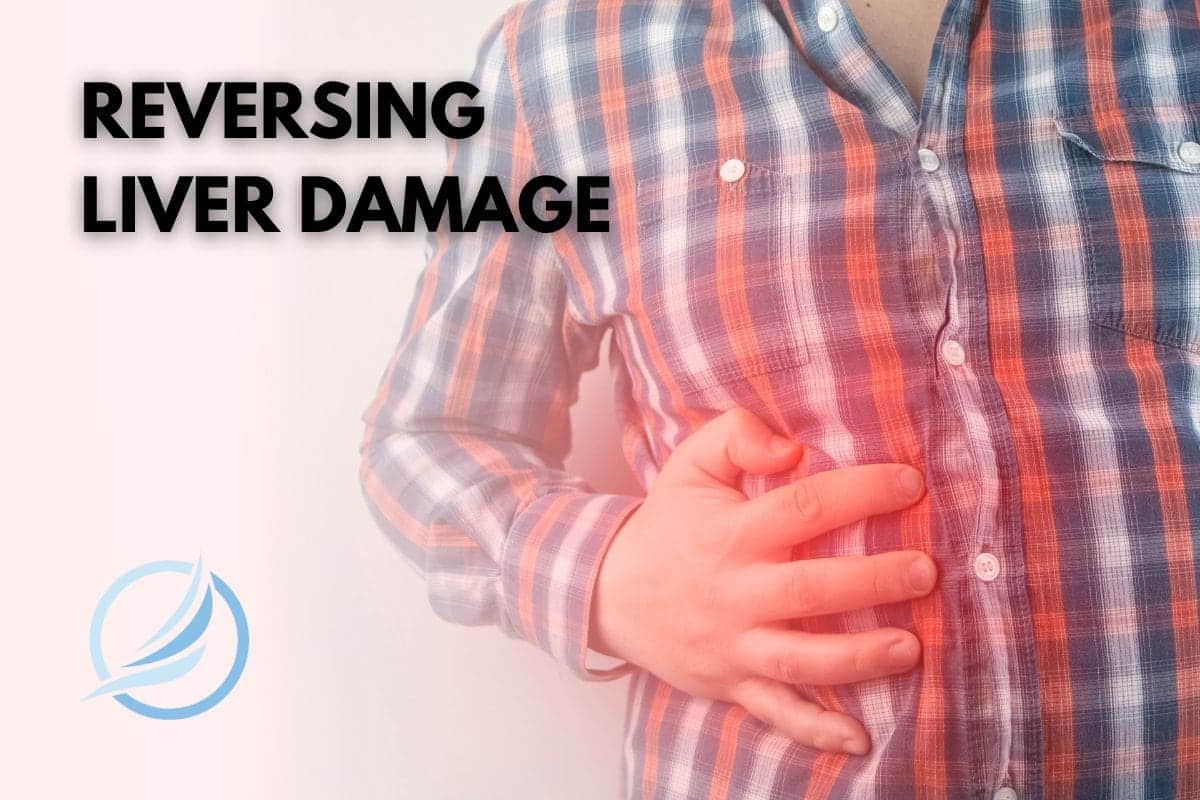The liver’s remarkable ability to heal and regenerate is well-known, particularly in discussions about alcohol abuse or the impacts of an unhealthy diet. This organ’s resilience means there’s often an opportunity to begin positive lifestyle changes that can significantly improve your health. Whether the steps involve dietary adjustments, increased physical activity, or more intensive medical interventions, the potential to reverse liver damage exists. This article outlines five critical ways to support your liver’s recovery process.
1. Liver Damage Is Reversible to a Certain Point
The duration for reversing fatty liver varies. It’s possible to heal completely within approximately two weeks in the early stages. However, in advanced cases with symptoms like fibrosis, a combination of lifestyle modifications and medical treatment is necessary to restore normal liver function.
Identifying the cause of the damage, whether it’s poor diet or alcohol abuse, is imperative. Even in advanced liver diseases such as cirrhosis, steps can be taken to mitigate further harm and manage health effectively.
2. The Liver’s Unique Regenerative Capacity
The liver stands out for its ability to regenerate lost or damaged tissue among human organs. Remarkably, a person can lose up to 75% of their liver and still experience complete recovery given adequate time and care.
Individuals with fatty liver disease, whether due to alcohol or other factors, can often reverse the condition by implementing dietary changes, abstaining from alcohol, engaging in regular exercise, and following prescribed medical treatments.
3. Optimize Your Diet for Liver Health
Diet plays a crucial role in liver health. To support liver regeneration and reverse damage, particularly in cases of fatty liver, it’s essential to avoid foods rich in saturated fats and sugars, such as:
- Processed fast foods.
- Excessive added sugars.
- Soft drinks containing high-fructose corn syrup.
- Alcoholic beverages.
Alcohol, a leading cause of liver disease, poses a significant risk, especially for those already experiencing liver issues. The threshold for safe alcohol consumption is lower than commonly perceived.
In addition to avoiding harmful foods, incorporating liver-friendly options into your diet can significantly boost liver health. Key foods include:
- Leafy Greens: Spinach, kale, and collard greens, rich in antioxidants, support liver cleansing and recovery.
- Cruciferous Vegetables: Broccoli, Brussels sprouts, and cauliflower enhance liver enzyme production, aiding detoxification.
- Fatty Fish: Options like salmon and mackerel, high in omega-3 fatty acids, reduce liver inflammation and fat accumulation.
- Nuts: Walnuts are rich in beneficial fats and antioxidants, supporting liver function.
- Fruits: Berries and citrus fruits are high in antioxidants and vitamins, aiding liver health.
- Oats and Whole Grains: These fiber-rich foods assist in maintaining a healthy weight and reduce liver fat.
Incorporating these foods into your diet can make a significant difference in reversing liver damage and maintaining overall liver health.
4. The Role of Exercise in Liver Recovery
Doing 20 to 60 minutes of moderate exercise daily can dramatically reduce liver fat. Combined with a nutritious diet, this enhances the likelihood of reversing liver damage.
Regular physical activity improves well-being by enhancing sleep, muscle strength, endurance, and weight management. Specific exercises that are easy to integrate into daily routines include:
- Brisk Walking or Jogging: 30 minutes daily can significantly impact liver health by enhancing metabolism and reducing liver fat.
- Cycling: A low-impact exercise that improves cardiovascular health and aids in weight management.
- Swimming: Offers a full-body workout, reducing stress on the liver by maintaining overall fitness.
- Yoga: Gentle poses and stretches in yoga help with stress reduction and metabolic regulation.
- Strength Training: Light to moderate weight training twice a week can improve muscle mass and liver function.
Consult a healthcare provider to determine the most suitable exercise regimen for your situation.
5. Manage Cholesterol for Liver Health
The liver plays a key role in metabolizing cholesterol. A malfunctioning liver can increase LDL (low-density lipoprotein) levels, potentially leading to arterial blockage. A balanced diet and active lifestyle are crucial for maintaining healthy cholesterol levels. Your doctor can provide guidance on diet and, if necessary, medication to manage cholesterol effectively.
Early Detection and Treatment of Liver Damage
With estimates suggesting that between 80 and 100 million Americans might be affected by liver disease, awareness and early detection are crucial. Risk factors include hepatitis infections, autoimmune diseases, family history of liver disease, and exceeding recommended alcohol consumption limits. Be vigilant for symptoms such as:
- Jaundice: A yellowing of the skin or eyes.
- Abdominal Pain and Swelling: Particularly in the upper right abdomen.
- Dark Urine or Pale Stool: Changes in waste can indicate liver issues.
- Chronic Fatigue: Persistent tiredness not relieved by rest.
- Nausea or Loss of Appetite: Often accompanied by weight loss.
- Itchy Skin: Unexplained itching can be a sign of liver distress.
If you notice any symptoms indicative of liver damage, promptly consult a healthcare professional. Early intervention can significantly enhance the chances of a full recovery.


































